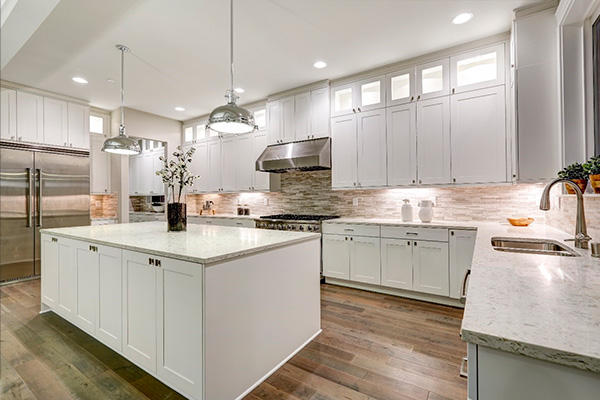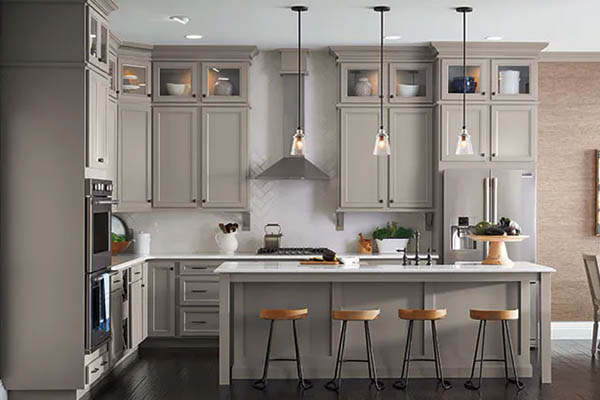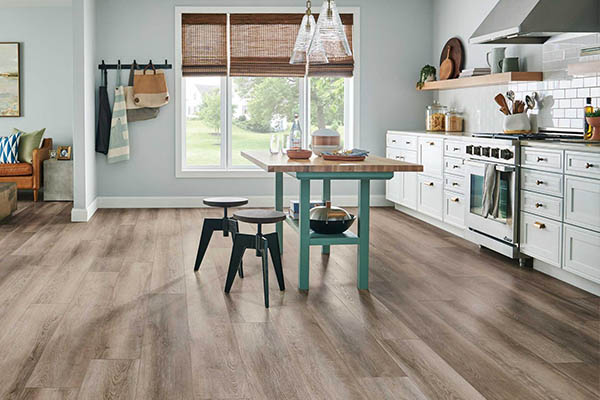The cozy beauty of hardwood flooring

Hardwood flooring is known for its natural beauty and warmth. It may provide a sense of sophistication and style to any space in a home. The beauty of hardwood flooring can be enhanced by the natural variations in color and grain patterns that occur in different species of wood. Hardwood floors are adaptable and can enhance different interior design styles, from classic to modern.
They can be stained or finished in multiple colors and finishes, from light and natural to dark and rich, allowing for customization to personal preference.
A timeless and classy option, hardwood flooring may enhance the warmth, elegance, and value of any house.
What is hardwood, exactly?
Hardwood flooring is a type of floor covering made from hardwood, typically oak or maple, that can be stained in various colors. Natural, stained, and polished hardwood floors are just a few of the treatments that are offered. It resists stains and is simple to clean. The installation process is relatively straightforward and can be handled by a professional or as a do-it-yourself project.

What kinds of hardwood floors are there to choose from?
Different types of hardwood flooring are available, including:
- Solid hardwood: it is made from a single piece of solid wood, so it is possible to sand and refinish this flooring several times.
- Engineered hardwood: This type of flooring is made from several layers of wood, with a layer of hardwood on top. Because it is more sturdy than solid hardwood, it is an excellent option for installation on concrete or in spaces with high levels of humidity.
- Exotic hardwood: This type of flooring is made from tropical hardwoods such as Brazilian cherry, tigerwood, and teak. It is often more expensive than domestic hardwoods and can be quite durable.
- Unfinished hardwood: This type of flooring is unfinished, and it can be stained or finished on-site.
- Prefinished hardwood: This type of flooring is finished at the factory, and it can be installed as is.
- Hand-scraped hardwood: This type of flooring is sanded by hand to create a rustic, distressed look.
- Parquet: This type of flooring is made up of small pieces of hardwood arranged in a geometric pattern, such as a herringbone or basketweave.
The choice of hardwood flooring will depend on the individual's precise requirements, aesthetic preferences, and financial constraints.
What are the Pros and Cons of hardwood?
Pros of hardwood flooring:
- Durable: If maintained correctly, hardwood floors, which are renowned for their durability, may last for decades.
- Easy to clean: As opposed to carpet, which collects dust and debris, hardwood floors are comparatively simple to clean and maintain.
- Increase property value: Hardwood flooring can increase the value of a property.
- Variety of design options: Hardwood flooring comes in a variety of colors, stains, and finishes that can match any decor.
- Hypoallergenic: Hardwood floors do not hold onto allergens like dust and pet dander, making it a good option for people with allergies.
- Renewable: The longevity of hardwood flooring may be increased by repeatedly sanding and refinishing it. This means that hardwood flooring can look new even after years of wear and tear.
Cons of hardwood flooring:
- Expensive: Depending on the type of wood, hardwood flooring can be expensive to purchase and, depending on installation method and layout pattern, can be pricey to install.
- Can be scratched: Hardwood floors can be scratched by heavy traffic or pets, although this can be minimized with regular maintenance and the use of area rugs.
- Can be affected by humidity: Hardwood floors can expand or contract depending on the humidity levels in the environment, which can cause gaps or buckling.
- Can be slippery: Hardwood floors can be slippery, especially when wet.
- Can be affected by sunlight: Hardwood floors can fade or darken over time when exposed to sunlight.
What is the lifespan of Hardwood flooring?
The lifespan of hardwood flooring can vary depending on the type of wood, the installation's quality, and the maintenance level.
When properly installed and maintained, solid hardwood flooring can last for decades, even up to 100 years or more.
The lifespan of engineered hardwood flooring is generally shorter than solid hardwood but can still last for 20-30 years or more.
The lifespan of both types of hardwood flooring can be extended by periodically sanding and refinishing the surface, which can remove scratches and stains and restore the wood's natural beauty.
Exotic hardwood flooring is often more durable and may last longer than domestic hardwoods, depending on the species.
It's important to note that the lifespan of hardwood flooring can be impacted by factors such as exposure to moisture, heavy foot traffic, sunlight, and extreme temperature changes.
Proper installation, regular maintenance, and timely repairs can help to extend the lifespan of hardwood flooring.
In any case, it's essential to consider the longevity of the flooring when making a decision and also weigh in the costs of the flooring, the installation, and the maintenance over time.
How to maintain the Hardwood flooring?
Maintaining hardwood floors is important to follow a regular cleaning and care routine. Some tips for maintaining hardwood floors include:
- Sweep, clean, or vacuum the floor frequently to get rid of dirt and debris that might damage the surface.
- Use a damp mop or cloth to clean the floor. Use water, a light detergent, or a cleaning solution made exclusively for hardwood floors. Water should not be used in excess since this might harm the wood.
- Place doormats at all exterior doors to help trap dirt and debris before it gets tracked onto the floor.
- To prevent scratching the floor's surface, stay away from abrasive cleaning supplies and equipment like steel wool and scouring pads.
- Use furniture pads beneath the legs of chairs, tables, and other pieces of furniture to prevent scuffs.
- It's best to avoid dragging bulky furniture or appliances across the floor as this might lead to damage and scuffs.
- Protect the floor from sunlight and heat sources, as prolonged exposure can cause the wood to fade or warp.
- In order to avoid staining, clean up spills as quickly as possible.
- Avoid using wax or oil-based products on the floor, as they can make the surface slippery and may leave a residue that attracts dirt.
- Re-coating or refinishing hardwood floor is necessary after several years of usage. Consult professional flooring experts to know the best time to do it.
- Your hardwood floors will remain gorgeous for many years if you adhere to these suggestions and perform routine care.

We hope this information was helpful to you in determining if this type of floor fits your requirements.



